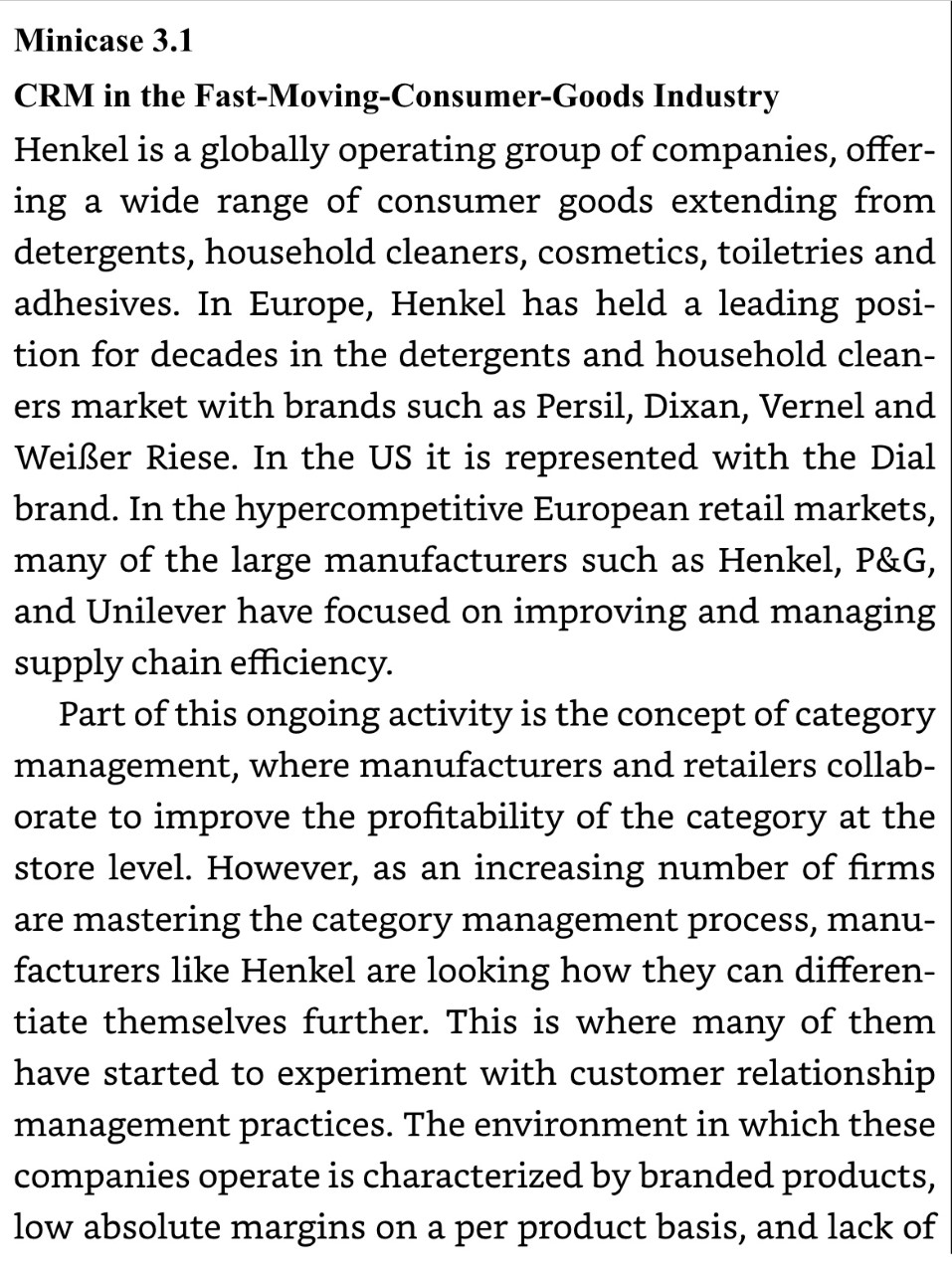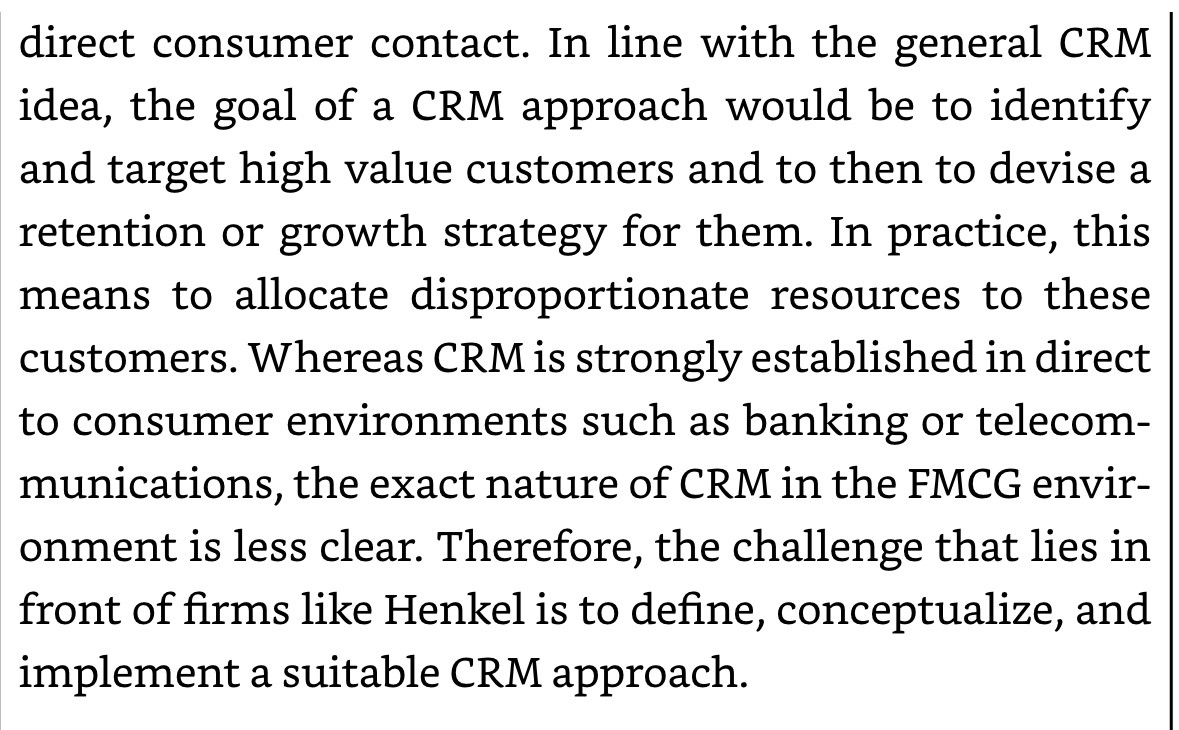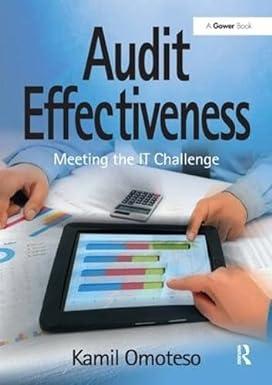Mini Case 3.1 from Customer Relation Management - Kumar Reinartz 3rd edition.


I am having trouble maybe connecting the content from the book to these questions. I went back and tried to read but I am not connecting the dots. If you are familiar with the book and can tell me where to focus on for these questions please assist. I am not looking for just answers, I need to understand the subject matter:
Mini Case 3.1 CRM in the Fast-Moving-Consumer-Goods Industry:
- How would you define and measure customer value to Henkel? Should it define value on the individual level or on the segment level?
- What is the look and feel of strategic CRM in the FMCG environment?
- Is there a necessity for manufacturers to partner up with retailers in order to device an effective CRM strategy?
Minicase 3.1 CRM in the Fast-Moving-Consumer-Goods Industry Henkel is a globally operating group of companies, offer- ing a wide range of consumer goods extending from detergents, household cleaners, cosmetics, toiletries and adhesives. In Europe, Henkel has held a leading posi- tion for decades in the detergents and household clean- ers market with brands such as Persil, Dixan, Vernel and Weier Riese. In the US it is represented with the Dial brand. In the hypercompetitive European retail markets, many of the large manufacturers such as Henkel, P&G, and Unilever have focused on improving and managing supply chain efficiency. Part of this ongoing activity is the concept of category management, where manufacturers and retailers collab- orate to improve the profitability of the category at the store level. However, as an increasing number of firms are mastering the category management process, manu- facturers like Henkel are looking how they can differen- tiate themselves further. This is where many of them have started to experiment with customer relationship management practices. The environment in which these companies operate is characterized by branded products, low absolute margins on a per product basis, and lack of direct consumer contact. In line with the general CRM idea, the goal of a CRM approach would be to identify and target high value customers and to then to devise a retention or growth strategy for them. In practice, this means to allocate disproportionate resources to these customers. Whereas CRM is strongly established in direct to consumer environments such as banking or telecom- munications, the exact nature of CRM in the FMCG envir- onment is less clear. Therefore, the challenge that lies in front of firms like Henkel is to define, conceptualize, and implement a suitable CRM approach. Minicase 3.1 CRM in the Fast-Moving-Consumer-Goods Industry Henkel is a globally operating group of companies, offer- ing a wide range of consumer goods extending from detergents, household cleaners, cosmetics, toiletries and adhesives. In Europe, Henkel has held a leading posi- tion for decades in the detergents and household clean- ers market with brands such as Persil, Dixan, Vernel and Weier Riese. In the US it is represented with the Dial brand. In the hypercompetitive European retail markets, many of the large manufacturers such as Henkel, P&G, and Unilever have focused on improving and managing supply chain efficiency. Part of this ongoing activity is the concept of category management, where manufacturers and retailers collab- orate to improve the profitability of the category at the store level. However, as an increasing number of firms are mastering the category management process, manu- facturers like Henkel are looking how they can differen- tiate themselves further. This is where many of them have started to experiment with customer relationship management practices. The environment in which these companies operate is characterized by branded products, low absolute margins on a per product basis, and lack of direct consumer contact. In line with the general CRM idea, the goal of a CRM approach would be to identify and target high value customers and to then to devise a retention or growth strategy for them. In practice, this means to allocate disproportionate resources to these customers. Whereas CRM is strongly established in direct to consumer environments such as banking or telecom- munications, the exact nature of CRM in the FMCG envir- onment is less clear. Therefore, the challenge that lies in front of firms like Henkel is to define, conceptualize, and implement a suitable CRM approach








